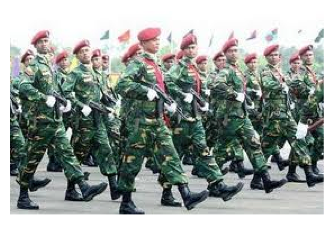The country of Bengal is a land where, owing to the climate’s favouring the base, the dust of dissension is always rising – so said the Mughal court chronicler Abul Fazl in the 16th century. Four hundred years later, the People’s Republic of Bangladesh has been a country where the dust of dissension has repeatedly risen among the men armed to guard the republic.

The country’s founder Sheikh Mujibur Rahman was killed with most of his family in a brutal coup in 1975. Within a decade of the country’s 1971 Liberation War against Pakistan, much of the political and military leadership of the war were either killed or politically delegitimized by successive coups. And the coups of the 1970s reverberate even today, as Humayun Ahmed found out shortly before his death — his last novel, set in 1975, has been effectively banned because his depiction of history doesn’t suit the version favoured by Bangladesh’s current political dispensation. The politicised quest for what Naeem Mohaiemen calls shothik itihash stifles the freedom of speech and thought, and sets back academia and creativity.
Of course, what actually happened in the 1970s, and beyond, should be subject to serious debate. History isn’t, after all, mere recount of dates and facts. History should be about understanding what happened and why they happened. Needless to say, one’s understanding depends on one’s own political biases.
Over the folder, I summarise major mutinies/coups/rebellions of the past four decades, and the narrative reflects my own biases and ideological prisms – just as one’s terrorist is another’s freedom fighter, so is one’s mutiny someone else’s revolution. For the interested reader, a reading list is provided at the end.


Recent Comments